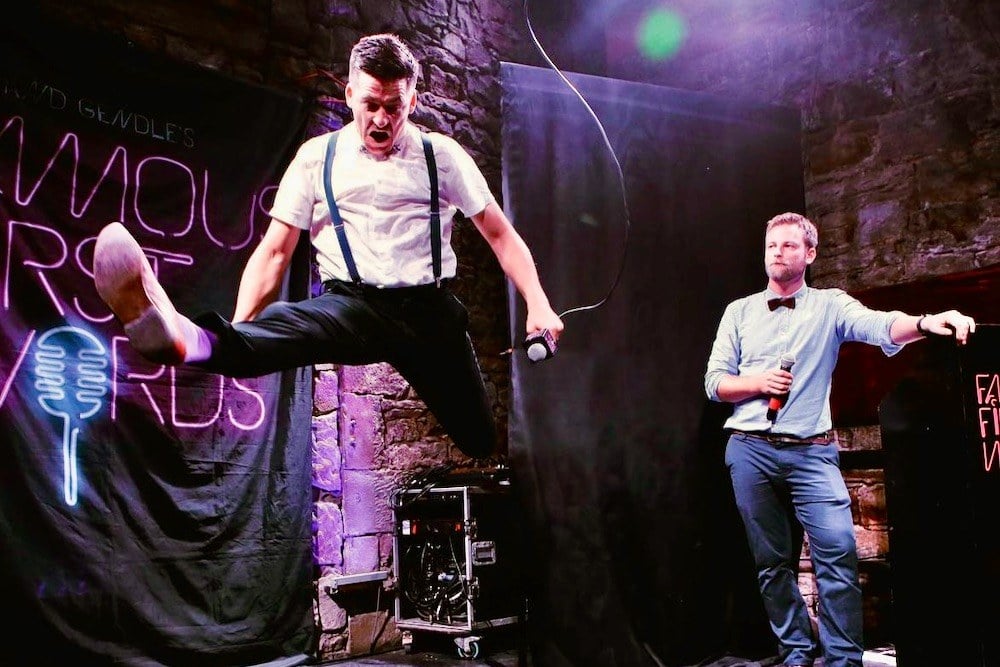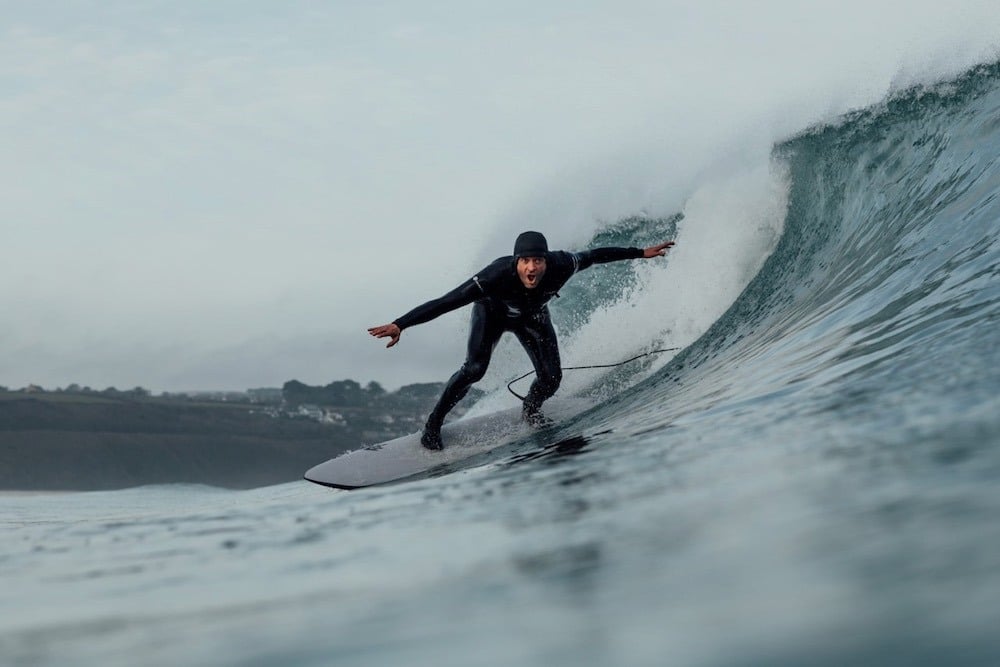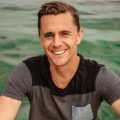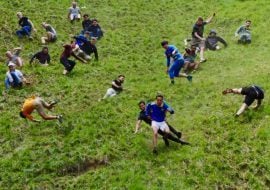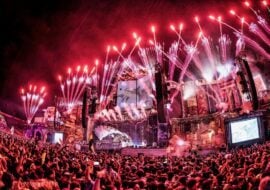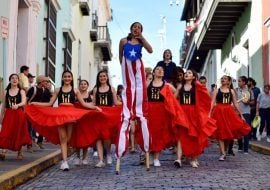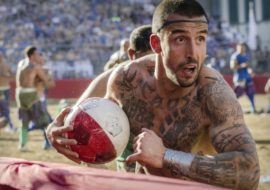The Powell Movement Podcast: Mike Powell


Episode 27: Podcast with Mike Powell, inside the World of Action Sports with The Powell Movement Podcast
In the next episode Oli Russell-Cowan chats to ski industry veteran, action sports podcast host and producer of the Powell Movement Podcast, Mike Powell.
Powell grew up in Washington, DC and went to Radford University in Virginia studying speech communications. He moved to Vail, Colorado after college and got hooked on snowboarding.
He spent 16 years in marketing, action sports management and working with the world’s best skiers in the world at K2 Skis. At K2 Powell started as International Team Manager then on to Global Marketing Manager and Partnerships. He got the opportunity to MC at skiing and snowboarding events around the world for Red Bull, K2 and Powder Magazine.
Powell went on to produce and host the Sponsored Podcast for Powder Magazine finding the stories behind the skiers. In 2017 he started the Powell Movement Podcast featuring skiing, snowboarding and other action sports legends.
Tune in for some of Powell’s best stories over the years at K2, action sports events and how he grew the Powell Movement Podcast.
Listen to the podcast:
Dive in and listen to this episode on Apple Podcast and Spotify.
Read the transcript:
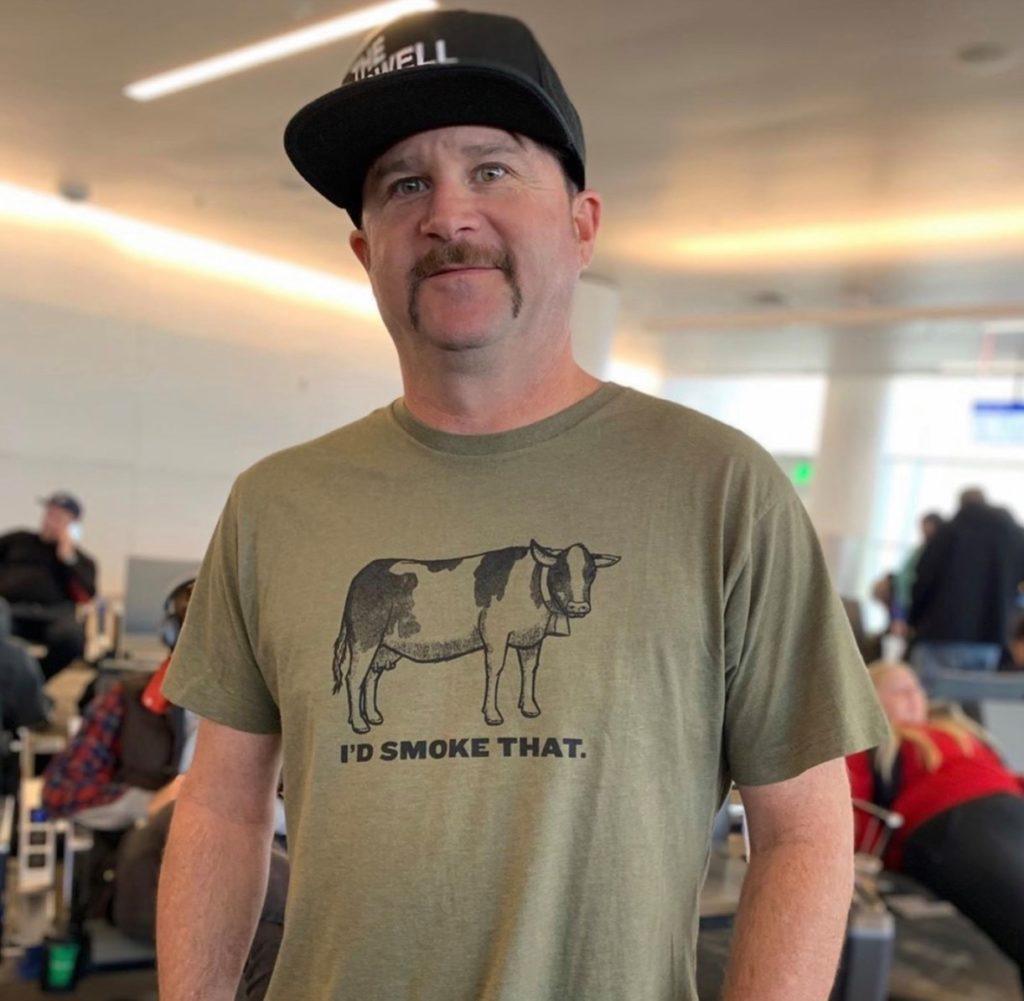
Rad Season: Hi guys, it’s Oli from Rad Season. I’m stoked to be joined today by ski industry veteran, action sports host of The Powell Movement, Mike Powell.
Mike, thanks for coming on the show, dude.
Mike Powell: Thanks for having me, man.
Oli: And where about are you at the moment?
Mike: I am in a bathroom in the Washington DC area at my Mimi Dells. Unfortunately, she just passed away, but we are sipping Shiva at her house and she has a mirrored bathroom, that every surface is covered in mirrors, and I figured The Powell Movement podcast and bathrooms go hand-in-hand.
Based on I hope you get that The Powell Movement is a poop joke, and I’m in a toilet to do the podcast. I have a beer here. I hope you have a beer. Should we cheers?
Oli: I do. Cheers.
Mike: Alright. Cheers, man.
Oli: I’m definitely loving the whole décor of the mirrors. It looks like you’re in a nightclub.
Mike: She was the classiest person ever and had some really unique things going on. It was all about style for her, and that’s really with all these sports. Everything’s about style. I think I learned that from my grandmother.
Growing up snowboarding and skiing

Oli: You grew up in DC, right?
Mike: I grew up in the DC area. Went to Langley High School then Radford University. We skied a bunch growing up, made a couple of Colorado trips, did a lot of time in Beaver Creek in Vail as a youth, and then went to college. In college, there really wasn’t much skiing, as there wasn’t much money in my pocket in college. So I didn’t get to go that often, but right when I got out, I started working at a ski shop and realized why would I work in a ski shop when I could just move to Colorado and ride every day?
I had started snowboarding by this point. So I would say 1997, I moved up to Colorado and I did three years in Vail, worked at Buzz’s Boards, Christy Sports, Vendetta’s, and you know, get my hundred days a year, and that was the best time I had in the snow sports world.
Oli: When you got into the retail business was that the start of it all?
Mike: I was finished school and I needed something to do while I figured out what I was going to do with my life, but I wasn’t going to get a real job right away. I knew that I love snowboarding. At that point, that’s what I was all about. I figured that was going to be the plan, I was going to move out west and I was going to snowboard, and I did that for a few years.
Yeah, you know that I always had fun being on the mountain. That was kind of where any problem in life is forgotten, and you can just have fun. So that was always a happy place for me, and I realized I don’t want to do something that just sucks for the rest of my life. While every job has a portion of sucking to it, working in the world of snow was a lot better than everywhere else.
Oli: Did you know that back then? Was that something that you thought, okay, this is what I want to do when you were growing up as a kid, or when you got into college?
Mike: When I was growing up as a kid, I think I wanted to be a sports broadcaster. I have an uncle who does the Wizards and he was the voice of the Wizards for 20 years here in Washington DC. He’s like a local celebrity here. Just seeing what he did throughout his life, I really wanted to do that, but I didn’t study in college, and I wish I would have done that now, but I didn’t. I had no real plan after school, so the ski shop invited me in for a job and 30 years later, I’m still in the business.
Getting into the ski industry

Oli: What happened then? So you go from the ski shop because you had a pretty long career through multiple roles at K2, but what was the transition between the shop and where’d you go from there?
Mike: Well, I blew my knee out towards the end of the season, I think in ‘99. I came back to DC and I had to have my knee reconstructed and all of that. I ended up with a terrible infection and surgeries in the hospital for like two weeks. It was like six months of not really walking, so I was miserable. I had a PICC line to my heart. It just absolutely sucked.
While that was going on, I found a job on the internet that K2 was hiring something called an ‘Ambassador’. The way it looked, it looked like it was a rep job. You get a van and you go shop to shop, mountain to mountain. So I was able to apply for that and they got in touch with me. I had the interview and I thought everything went well, but they had a hiring freeze at K2. They were like, hey man, we would love to bring you on, but we’re not going to be able to do it for about eight months to a year.
So that’s actually when I had the knee surgery was right when they told me they couldn’t hire me, because I was going to work for K2 with the blown knee, get insurance, then get my knee fixed with the K2 insurance. I had insurance anyway, so I did it myself while I was going to wait for K2. While I was doing that, I realized I needed to keep in touch with those hiring managers, or I was going to be forgotten because they had a freeze for a while.
So I had a friend who used to send me the filthiest porno ever. Every week I would get an email with just disgusting stuff that I didn’t even want to send to people because it was so bad. So I figured I’d send it to these K2 guys, the hiring managers. Every week I sent them these porno emails and they loved them. They thought they were so great and I believe that’s why I got hired eventually, was because for those six to eight months that I was recovering from my knee, I was sending them just terrible, explicit material that would get most people fired, but not at K2.
Oli: Did you think then that this will definitely be an interesting job? It will be a good fit if these guys are finding that funny, right?
Mike: Yeah, you know, the dream for me, I thought I was going to get this huge van and I didn’t think I was going to have too much stuff to put in it. So at night, I would think about how I was going to pimp out the inside of my van, how I was going to put a bed that fell down, I might have a TV in there. That’s really what I thought I was gonna do as a rep. Then I realized that there was so much gear that you’re traveling around with, that’s not the job. You actually stay in hotels or with friends and the van is totally full. What I thought the job was going to be was just high fiving people, driving place to place in a van, and actually, my first job was kind of that.
Oli: So you were the East Coast ambassador, right?
Mike: Yeah, I worked from DC to New York City, and I did everything inline skate and ski. So it was funny that I came from being a snowboarder, and I was put right into a world of inline skate and skiing, and I had no problems with it whatsoever. Being that, you know, I found out the next year that when I got back on a snowboard, the way that my ACL is right now when I get on the heel side edge, I have a lot of loosenesses, like two inches almost. So I can’t even ride a snowboard unless I’m running switch it seems like, so I had to end up turning to skiing because I couldn’t snowboard anymore. It just wasn’t fun.
Oli: No, and when you started with the transition, going into inline skating as well at K2, that was when inline was a big deal back then, right?
Mike: Inline kept skiing and snowboarding in business for a few years. I feel like from ‘96 to 2000 when shit wasn’t doing really well, especially for the ski world, inline skating was the thing that was the cash cow for K2. I mean, people can say whatever they want about the sport, and I’m sure a lot of people in those walls have opinions of what’s cool and what’s not cool, but I really just cared about people having fun, and we were having fun and selling a shit ton of inline skates. I mean, you remember those times from ‘98 to 2000. I mean, given it was in the end of 2000 a little bit later, and it was still doing well. There were so many people inline skating. It was like the biggest thing in the world until it was the smallest thing in the world.
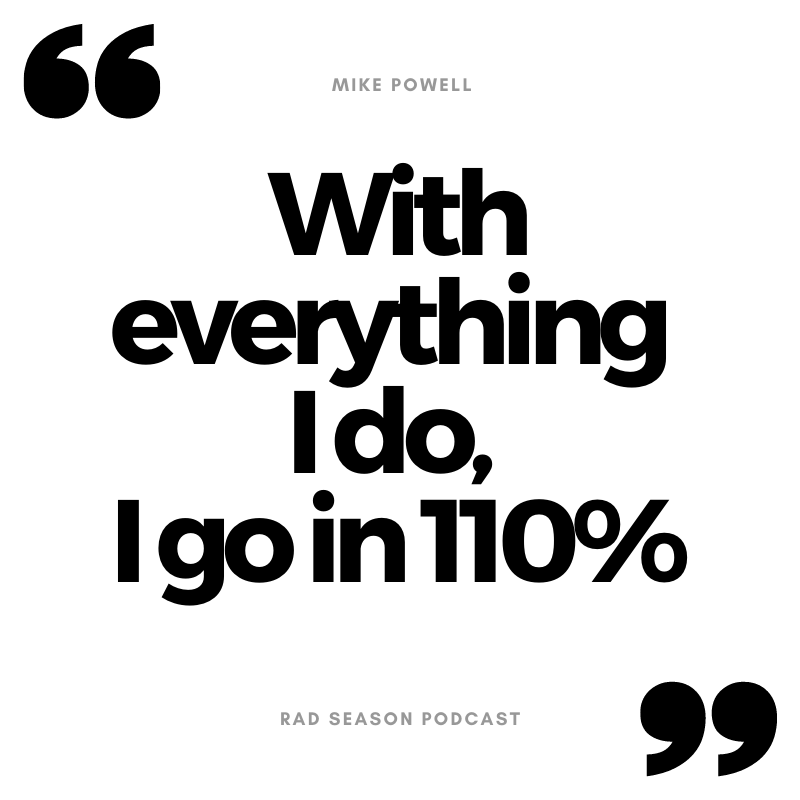
Oli: Yeah. I mean, why do you reckon? Like what contributed to it to this rise? And then inevitably, you know…?
Mike: I look at hockey. I got into it through hockey and I had played in many leagues and just loved it. I never really thought about the skating part. It was just a function of playing hockey. Then when I got in at K2 was when I started skating ramps and going to Woodward and seeing a lot of different stuff that really, I wasn’t that educated on when I got hired, but I lied and I got in, so whatever.
Then, you know, with everything I do, I kind of go in 110%. So I was fully into that whole scene and getting in on skating. I think hockey was the big thing that got everybody into it. ESPN used to run hockey leagues where you could just see it on TV all the time. That gave kids some kind of aspirational, thing where it was like, Hey, I can play hockey, and maybe there’s a future in me playing roller hockey, I don’t have to play ice.
Then on the aggressive side, you have the X-Games, and all these different things that gave people a feeder system to think that they could actually move up in the sport, and that is all gone now. That’s why it’s as underground as it gets.
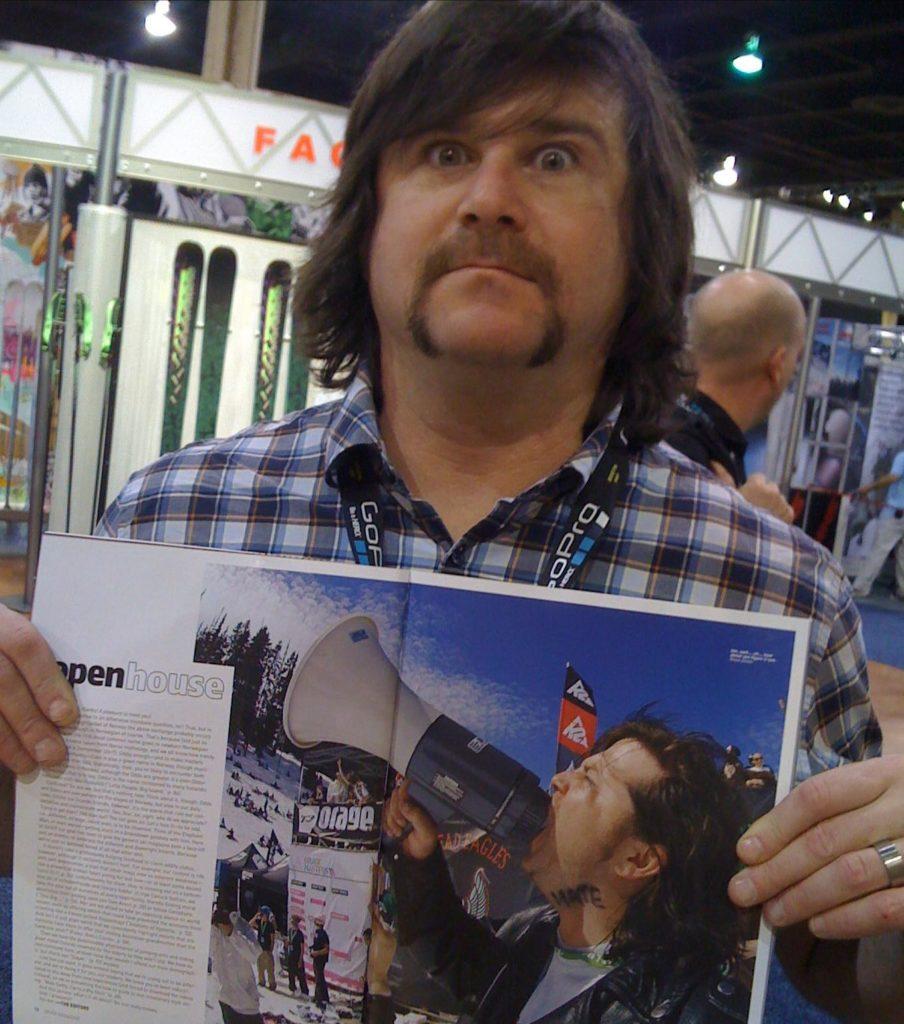
The Hype of Inline Skating
Oli: Were you skating as well when you were working there? Did you sort of get excited about it?
Mike: Yeah, I stopped though. I mean, I did win the under-40 contest at my local skate park and there were some skaters who had been skating for like 20 years there. So I felt good about that. I have a trophy that I proudly display still. Yeah, I skated. I mean, I still think it’s fun. My kid is skateboarding now, and I broke out the skates not too long ago and went and just hit a ledge with him. Given, he wasn’t hitting a ledge because he’s like 11 and just figuring it out, but yeah, I have a lot of fun doing it.
Oli: That’s cool. Then what happened after that? Then you went into team management, is that right?
Mike: Yeah, you know, so I was doing the inline skate thing and my friends were are all the ski guys, so Mike Goot, Ryan Schmies is really famous ski designer who is an incredible artist, super talented, and we lived together. He moved out to Seattle, and we moved into a place together in about 2002. When we did, every skier that came through Seattle, whether they were on K2 or not, stayed at my house.
When they stayed at my house they watch rollerblading videos, and when they watch those videos it was me just telling them like, I can’t believe you’re not watching these videos, just to even find the rails. It’s like every rail’s been found, and you can just watch these videos and see them all and then see where you want to go. I don’t know if that rubbed off on them or not, but I established a relationship with it seemed like 50 to 100 skiers who would just come stay at my house. It was always a cloud of smoke and beer. It was just more of a friendship level. So I think I met a lot of the ski team, and snowboard team for that matter, just through them coming through town.

Mike: We are back. Sorry, Oli.
Oli: That’s okay, man. All good. I was just grinning at the screen on my own. Like, I don’t know if I should start singing or something or what.
Mike: I know, I was running. I can’t believe this, I’m the worst podcast guest ever. If someone did that to me in a live video I would probably smile like you are and figure out how to fill the time, but I apologize for that, and I couldn’t even spell my name right on the screen. That’s fine with me. So where were we?
Oli: So we were talking about everyone coming and crashing at your house when they were over in Seattle.
Mike: Yeah, so that’s just kind of how I met all the athletes through that. When Mike Goot, who was the K2 ski team manager, it was time for him to be promoted to marketing manager, they looked all over in the ski world, they didn’t really know who to hire because it’s such a sensitive position where it’s not about being the best skier when you’re a team manager. It’s about getting shit done with people. It’s making sure everybody has what they need, making sure everybody’s where they need to be, making sure everybody understands exactly what the goal is, and then working together to achieve it.
I think they found a lot of guys that were cool, but that doesn’t always translate into the best office guys, desk jockeys. So I already had a relationship with all the athletes and when they were asking the athletes who they should bring in, I think my name was suggested a bunch, and I kind of shifted over from the inline side to the ski side. Although, I continued doing inline stuff, but ski became the major role in my career from about 2006 or so.
Oli: That’s cool. Were you traveling around a bunch as well with that? Like across country?
Mike: Yeah, with inline it was great. There was so much travel. So I moved out to Seattle with the inline job and I traveled all summer. So I was gone from April to September, and I just thought Seattle sucked because I never saw the sun there. I was always traveling to exotic places and it was amazing, and then I get on the ski side and I’m traveling a ton as well, but I’m home for the summers. So when I got on the ski side is when I realized that Seattle was awesome. When I was on the skate side, and that’s all I did, I just thought Seattle sucked because it only rained and I missed all summer.
MCing and hosting action sports events
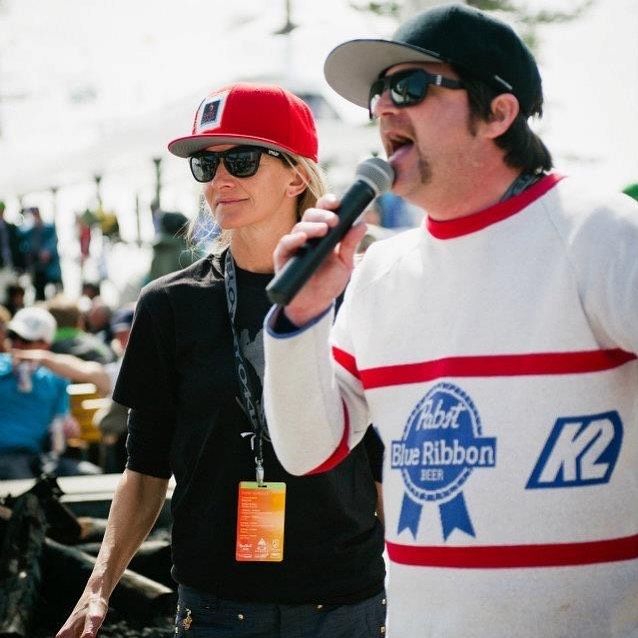
Oli: You were MCing as well. Was that kind of like the start? You were hosting events and MCing different action sports events all over the place.
Mike: You know, that happened. So with K2 I think the best event I was ever a part of, there were two, The Back Nine was one, but the most fun event was called Kamp K2. We brought 350 people to Mount Baker, we rented 72 RVs, had 50 some odd kegs of beer, and we had pretty much a drinking and ski and snowboard Olympics over three days. It was one of those trips that was just amazing. You get there, you got a free pair of skis or snowboard, it was your choice. All like custom graphic branded Kamp K2. You’re at Mount Baker in April, and we ended up getting over a foot of snow, it was bluebird. Shit that just doesn’t happen in Washington. So it all lined up.
One of my jobs for that event was to MC a Flip Cup tournament. It was going to be 16 teams playing in this tournament, and whoever won gets a lot of points in this battle between the 16 teams. Whichever team accumulated the most points through the weekend would win a trip to Europe for Kamp K2 the next year. So I step up to the plate, and I’ve got my little microphone and I’m announcing this event, and my team doesn’t show up. So I’m like, okay, I will take on everyone here.
I go against the one team and I drink four beers real quick. I beat them and I’m like, I am so much faster than everybody at this whole event, and I’m going crazy. I beat the next four people, going to beat the next four people, so I’ve drunk like 12 beers really, really fast. I’m on the microphone, I throw up in a toilet and I get the volume on the microphone, not toilet a trashcan, so everybody can hear it.
There are 350 people in this tent. Then I go into the finals. In the finals, I beat four more people in drinking. I beat 16 people in drinking, won the contest, was going crazy on the microphone, put the microphone down.
I had like four jobs after that, like, this is such an industry event. People were like, hey, man, we’ve got this event in Whistler next week, you’re going to be at WSI. And I’m like, yeah. They’re like, what do you charge? I’m like, I don’t know, like 500 bucks, I’ve never done any events before. From there, it just started. I probably did 10 to 20 events a year from there until just a couple years ago when everything slowed down.
Oli: Awesome. Were you doing all kinds of different events as well?
Mike: Yeah, I did Powder Awards four or five times, did some stuff for Red Bull, did every K2 event that there was, some inline stuff. I mean, I yeah, I did as much as I possibly could when I had the time.

Oli: Would you say that first event was a standout as one of the most fun ones you’ve ever done?
Mike: Well, it had less to do with me being on the microphone than me winning the thing. In life, you have 10 to 15 moments that you think are your top moments in life. I don’t know about you, because I don’t know what you’ve been through, but when I won that beer drinking contest it was 350 people that just exploded in this tent. So I felt like I had won a game or something, which I guess I did. I would put that in my top 10 for sure. My bar mitzvah being one of them, my child born being one of them, getting married being one of them. But that would also fit in there.
Oli: So funny. So you were sort of tying in doing the MCing and doing live events on the side, and then obviously working for K2 as well and doing their events, is that right?
Mike: Yeah, it’s funny when you say it like that. Life back then did seem like it was all work, and work was fun so it didn’t matter. Between events between K2, if you woke up early, and you woke up at seven, you went into work early because everyone who worked at that company at that time, I don’t know what it’s like now, but you bled K2.
It wasn’t like you were just ski or snowboard or this or that, you were there for K2 first, and then the other sports mattered.
I mean, it’s cool being with the heritage brand in the category. That’s the cool heritage brand. It’s crazy how things are changing right now, and they’re, you know, people look at it, they’re more corporate. I mean, you can just look at 50, 60 years of ads and just see how cool that brand was, and how a brand’s personality aligned with my personality so much. When I think about the company, especially until at least 2009, they did a lot of hiring of people that fit the K2 mold. It wasn’t just looking at resumes, it was like you had to have that that quirky weirdness or you weren’t going to get hired.
Oli: Yeah, I remember that from trade shows. Going to ISPO in Germany in like the early 2000s and how the parties were there, and then looking at it now like, it’s definitely changed quite a lot, right?
Mike: Yeah, it’s not the Wild West like it used to be for sure.

Starting the Podcast
Oli: Yeah. So then like going from that, what happened to K2? And then when did the whole podcast thing start for you?
Mike: K2, for me, I mean, I worked with all my best friends. My life was my work, which is so crazy. I mean, it’s weird to intertwine things that tightly. So when it was time for me to leave K2, it was kind of when I just felt it was all kind of going downhill.
It felt like it wasn’t family as much anymore. There’s just a little bit different vibe going in. I mean, given I’m still great friends with all of those people, and we were all great friends then, but everything was changing internally. There was a lot of bitching. Every day you just hear somebody bitching about something else that was going on inside the company, and I did 12 years where that wasn’t the case. I think when I started bitching a little bit, was when I realized that I need to go. For me the things I complained about are money, and I was never gonna make any money at K2.
After I had gotten employee of the year, and I went into my review, and my boss looked at me, and he was like, Man, you’re gonna get a 1500 dollar bonus. And I’m like, wait, you’re telling me that on paper, I’m the best person in this company. That’s what my award said, and I know I’m not the best, but on paper I am. At least I was voted it this year, and I’m going to get 1500 dollars, which if you divide by 52 weeks isn’t much. It’s like $38 a week. So if that’s how much you value me, unfortunately, while I want to stay here, I’ve got to go and make more money.
So I took a job selling partnerships and I worked for the most awful human in the entire world. I hope she hears this and I hope terrible things happen to her, but not that terrible, because I’m not that mean, but am kind of, nothing with their health or anything like that, just like things that make her sad.
Either way, I worked there for a year, and I did really well, but I was cold calling people and trying to get money for Oakley’s Safe House at the Olympics. I got to go to Rio. That was cool, but like I said, when you work for someone who’s miserable, it makes every part of your life miserable. So I realized I needed out of there.
I put plans together for a podcast while I was working at this marketing firm. In May I started putting the plans together. I quit in August and started the podcast for Powder in September, which was a mistake, but I did it and then started my podcast the following December or January.

Oli: Awesome. And with Powder was that interviewing athletes and predominately skiers?
Mike: Yeah. They didn’t really have any digital properties going that well. They had Powder Productions, but I don’t think you know anything that Powder Production has done. So they wanted to have a podcast that talked to all the athletes that just made sense for Powder. So we actually were crushing it in season one of that podcast.
There was a lot of things that were told to me that really didn’t happen, unfortunately, but I did see the numbers the first three or four weeks. At one point, we were at about 15,000 listeners a week, which is crazy, you know that. That was after a couple of months, and they didn’t want to do a season two.
It was just comical to me because I told them, I was like, hey, guys, listen. When we were negotiating for our next contract, we had this phone call and we were going to do season two, I was gonna make some money off of it, it was gonna be great. Finally like it’s October, we’re about to launch the season, I get on the call with Powder, and they’re like, Hey, Mike, we had a budget cut, and with that budget cut means we’re going to focus on print only. We’re not going to focus on digital. I said to them, well, you’re going to be looking for a new job pretty soon. He’s like, Mike, you’re on speakerphone. There’s like 10 people in here. I’m like, they’re all going to be looking for new jobs very soon.
You know what they’re doing right now? They’re looking for new jobs.
I’m kidding, those people have all left, and there are other people in Powder that were going to get that thing back to normal, but none of those people are there anymore. Unfortunately, digital wasn’t as big of a function for them because, with any magazine, I feel like you should own the digital space. 10 years ago, Powder should have seen the opportunity and taken and invested, and invested, and invested, but that didn’t happen. People will learn from that.
I don’t know where I’m going with this, but Powder was a fixture in my life and I love what they do. There are a couple of years where I wasn’t a big fan of the content, but I felt like that was turning around and it’s a really sad thing. They’re not here anymore. I don’t know where I was going. I’m just talking shit now.
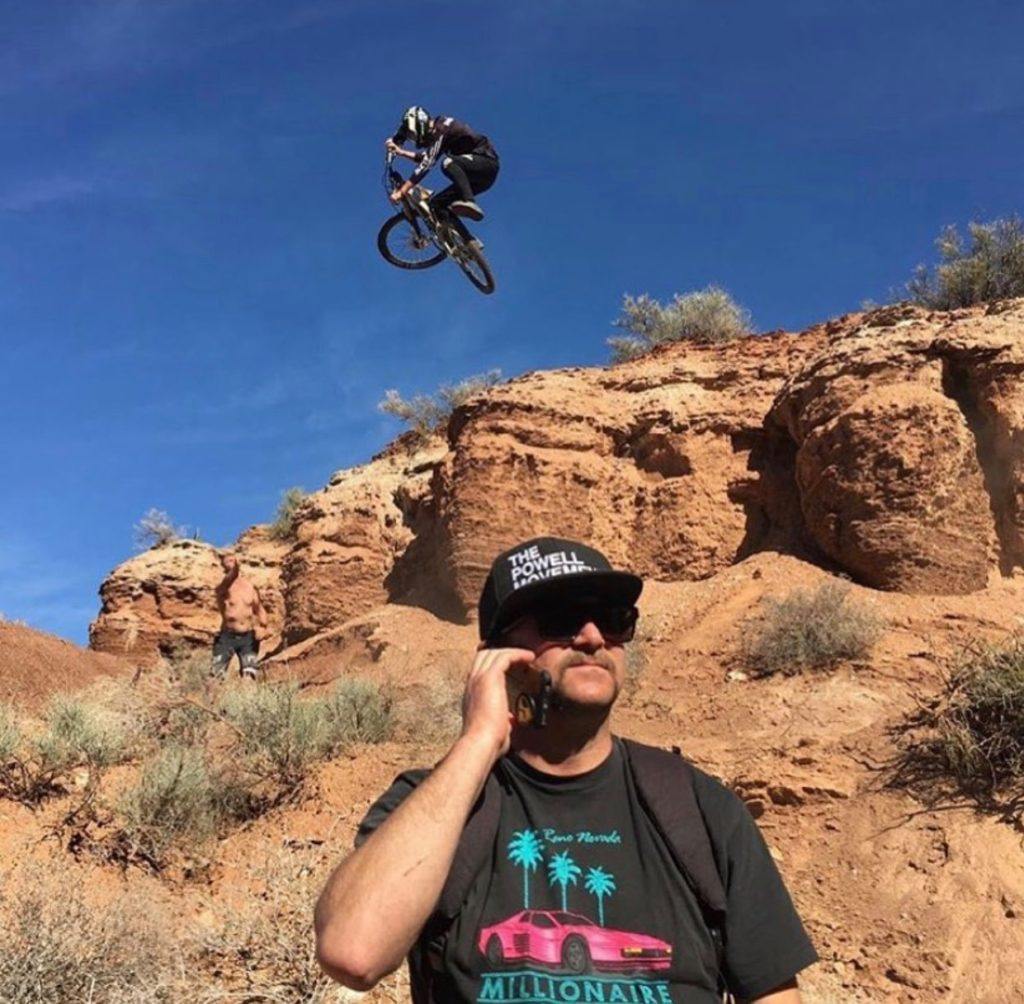
Oli: With that podcast, were you producing it anf hosting it? Essentially, were you getting your mates on and just talking shit with them? Who would be the guests and things like that?
Mike: Oh, it’s all pro skiers. I tried to keep it on the A-list of pro skiers that everybody knew. So it was fitting with Powder’s voice. It went really well. It was easy to do. I handled everything. So Powder wrote one paragraph and uploaded a file and I did everything else. So like all their intros and anything that said Powder or anything that you heard with the podcast is all done by someone who was not working for Powder, was a freelance guy, and that was me. They did write the intro paragraph and it was very well written every time.
Powell Movement Podcast
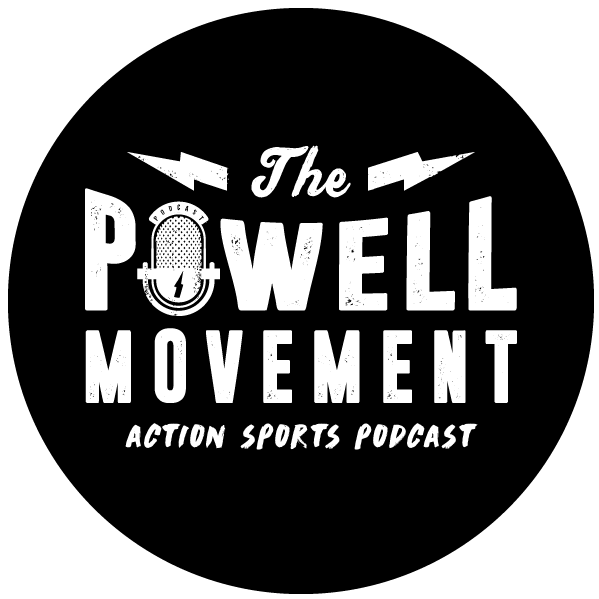
Oli: Oh, good. Then going from that, so then you started your own Powell Movement podcast, which is in 2017, right?
Mike: Yeah, I believe it was the first week of it and I had actually planned on starting my own podcast the whole time. So when I started with Powder, I would tease my podcast at the end by doing inappropriate questions on Powder. Then you could go to The Powell Movement and hear the inappropriate questions. So I was always driving people to my site. In thinking about it now, while it was great having a big publication pushing me out, they weren’t really pushing me out, they were just like showing people stuff. If they were behind it and actually pushing it, that would have been great for me, but since it was just another thing that existed on their site that they weren’t going to promote, it really did nothing but dilute the interviews that I have now I feel like. If that makes sense.
Oli: Yeah. How’s it changed a couple of years in? I mean, you’re almost on episode 200, right? I mean, how is that going from starting out and those first initial episodes, up to now, a couple of years later?
Mike: It’s funny to look at it and just see the numbers. You get 1000 listens in the first couple of episodes, and you’re like, wow, this thing is really working. Now you get some episodes to get up to 10,000 listens. That’s pretty incredible me that I can sit in my little room upstairs, and I put a shit ton of work into it, I know you put a shit ton of work into it, but it’s incredible that many people can hear something that I’m doing from my little room.
So I look at it as building a catalog of the history of the sports and the personalities in them. I have 200 now, and hopefully, I’ll have 600 in a few years, and we’ll be able to just have a catalog of who all these people were and that will exist. That’s what Powder was. That’s what Snowboarder was. They might not have always been that way when they got that way from focusing on athletes, but that’s what these magazines should have been, was building the heroes. Now it’s gonna be up to me, you, Freeskier, Ski Journal, Mountain Gazette, to build the heroes and tell the stories.
Oli: Yeah, and it’s cool hearing everyone’s individual stories. That’s the thing that I like the most about it, right? You get a bit more of an insight into the individual and what they’re all about.
Mike: Yeah. I find it’s always great if you cannot talk about anything that they’ve actually done and you’re more talking about them as a person. Like I interviewed, I shouldn’t even spoil it, but I will. I interviewed Henrik Harlaut for my 200th episode and psyched to get him on the podcast but we didn’t talk too much about any of the things that he accomplished during his career. It was more like the things that go through his head. I feel like you really get to know a person that way, and it’s like shit, you don’t need to talk about the education of style and break down his video projects. You need to think about what was going through his head the night before when he’s like, Is he really just focusing on the grab that much? And the look of how, what’s he really thinking? Because I think that really tells a lot more than the final product of any project someone’s working on.
Oli: Looking at all these characters are there any standouts or stories that you can share about? Any favorite moments from the last couple of years?
Mike: I feel like my favorite interview and based on personal reasons is this kid Ben Weis, who is an inline skater. He was very close with me, and eventually, I had to let him go from the K2 team because of some of his activities outside of skating.
He ended up dealing drugs, doing drugs, selling drugs. At one point in inappropriate questions, he said he once made someone eat poop, which is just absolutely disgusting, for drugs. That’s how bad drug problems get. I’m fascinated by people’s journeys, and sometimes I shouldn’t be fascinated by the dark stuff, but it is very interesting to me, especially with people I know. I don’t know why I brought up the poop story but that was the grossest part of the podcast.
Oli: Was that the worst thing you’ve ever heard on your show?
Mike: I mean, almost in my life. In terms of trying to bet somebody to do something, or you know, like, hey, I’ve got this and you can have it if you do this. I look at eating poop as the worst thing that you can make somebody do, especially their own, and that’s what he said someone did.
Oli: Crazy what these addictions do, huh?
Mike: Yeah, man. I don’t listen to any podcast but one, and it’s called The Dopey Podcast, and it’s all about drugs, addiction, and dumb shit. I don’t do like hardcore drugs or anything. I just like living vicariously through hearing these stories. It’s such a crazy podcast because there are two hosts for the first 45 – 50 episodes who are clean and like trying to stay sober and then one relapses and dies. Then they have to go into the next show, and he’s like, Whoa, I got the worst news ever yesterday. Chris is dead. It’s funny that the podcast totally changed after that and it’s not as good, but I don’t know. That’s in terms of what I listen to podcast-wise, that’s the only one.
Oli: Now what are you working on? Any sort of projects? I did see during lockdown you were doing this beer drinking competition, right? Where you’re kind of bringing on people and almost going back to the beer pong days, I guess.
Mike: Yeah, I’m really fast at drinking one beer. I don’t know if you saw the beer that we sipped, I actually slammed mine. It was gone in one sip. Yeah, that was something I did for like three weeks it felt like or something like that. I was 33 and 2, but that was just for fun and I started getting fat when I did that. So I was like up to 190 pounds. So I started exercising and now I’m down to 170, and I’m not drinking beer like that every day because no one wants to be fat.
Oli: I think that was like, maybe back in March. It was when we last spoke when the whole lockdown thing went on. That was crazy times. Are you doing anything with the podcast next year? Or is there anything that you kind of wanted to do with these episodes?
Mike: I mean, I wish I had an answer that could make me sound a little bit more creative or have a plan, but no. I’ve just got interviews lined up through I think mid-January right now. So I like to get a head start on scheduling so I never have to stress out about that. I’ve got that going. I’ve got sponsors lined up for season four, which is in January, maybe it’s season five. I don’t even know what it is, but I have sponsors lined up and I’m trying to get one or two more. I’ve got one exciting one that would fill my cannabis bucket, which would be very exciting for me because I wanted to do that forever. Yeah, that’s about it.
It’s my plan just to put up an episode every week for the next year or two. Then maybe I can reevaluate and see if there’s something else that I want to do differently. Right now, I’ve got an 11-year old, so it’s nice doing a podcast and being able to spend a shit ton of time with him. Eventually, he won’t want to hang out with me and then maybe I can look at other stuff.
Oli: Have you guys gone skiing together?
Mike: Oh yeah, we go a lot. We go every weekend and that’s kind of our thing. That’s like the only real sport that he’s into a lot. So we’re getting very excited for this season.
Oli: Nice. Any kind of, obviously with what’s going on, have you got any trips planned with any locations near you ski-wise?
Mike: We’re gonna do a lot of the summit at Snoqualmie. We’ll probably make Alpental home base this year, but we’re also going to hit Crystal a few times, White Pass, which is like the best secret in Washington, and they probably don’t want me to even mention that. They probably do, but the people who go there don’t. So we’ll go there and we’re just going to try to hit a lot of the local small mom and pop resorts. I feel like this year is going to be a big year for the small resort.
Oli: Yeah, I think so. Everyone’s gonna be going local, right? We’re in Portugal, they have a little mountain up there, but I don’t think it gets much snow. So I don’t know. I’ll be trying to go across to Spain, down to Sierra Nevada. There’s a place around there, which is all right.
Mike: Can’t you go to Andorra?
Oli: Oh yeah. We can go to Andorra. Drive-wise it’s about 11 hours from us. It’s about seven hours to Sierra Nevada in the south of Spain, but then it’s a quick flight from Lisbon to France, Austria and Switzerland and stuff. So, yeah, it’s all good.
Cool, man. So if people want to want to watch the show or if they want to listen in, what’s the best way to follow what you’re up to?
Mike: I mean, the easiest way is to go through iTunes and pull up the podcasts there. I have everything on my website, thepowellmovement.com. I think on every platform you can pretty much find where the podcast is, but I always feel like the easiest is just going to iTunes if you have an iPhone, and if not, there are other ways to do it on Androids. I just don’t know what they are.
Oli: Cool. Good stuff, man. Well, it’s been awesome talking to you. I look forward to hearing the next episodes. Yeah, we’ll be staying tuned.
Mike: Awesome, man. Well, thank you for making this happen. It’s a pleasure and a treat.
Oli: Thanks, man.
Mike: All right. Take care.
Watch the video:
Photo Credit: The Powell Movement
Missed the last episodes? Check them out!
Episode 24: Extreme and Adventure Sports – Alistair Gosling
Episode 25: Dew Tour – Courtney Gresik
Episode 26: FUEL TV – Don Meek
Last updated on Oct 30, 2020Have you subscribed to our Newsletter or Podcast? Listen to us on Apple Podcast and Spotify and follow us on Facebook, Instagram Twitter and YouTube.
Accommodation near Seattle
Rad Season is providing you with rentals and hotels at the lowest prices available online. Book your stay near Seattle using the map below!
